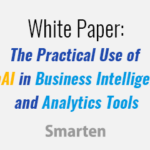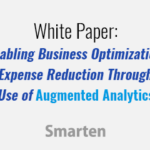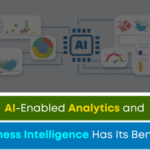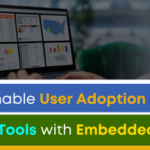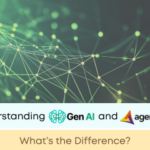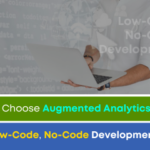What Determines the Success of a Citizen Data Scientist Initiative?
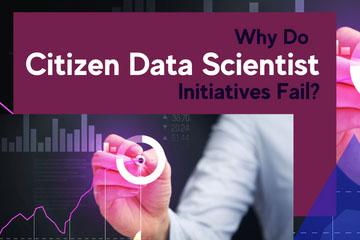
By now, every wise business team has acknowledged the advent of digital transformation and the transformation of business users into Citizen Data Scientists. But acknowledging the reality and enabling that reality within the walls of an enterprise are two very different things. Where many businesses fail in implementing the Citizen Data Scientist initiative, it is typical to find that the business has simply decided to deploy the strategy without much planning or culture change. Without understanding the shift in workflow, responsibilities and how the use of data will change the enterprise, it is unlikely that the business will succeed in its Citizen Data Scientist initiative.
Gartner has predicted that ‘…more than 40% of data science tasks will be automated, resulting in increased productivity and broader usage by citizen data scientists.’
‘If a business is truly committed to the concept of Citizen Data Scientists, and wishes to achieve the benefits of this type of initiative, it must review its current environment, make the right augmented analytics solution selection and plan for and execute the changes required.’
This prediction reflects the shift toward the use of data within the enterprise, and rightly so. The use of real data allows the business to better plan, adjust to the realities of the market and make real-time, confident decisions. Business users with the right support and solutions can work toward common goals and make fact-based decisions and recommendations, thereby avoiding missteps in the market and improving productivity and data literacy across the enterprise.
Factors affecting the success of a Citizen Data Scientist initiative include:
Solution Selection and Support
In order to adequately support the business user community, the business must select the right augmented analytics solution; a solution that is designed for users with average skills, and provides sophisticated analytics and capabilities in a self-serve environment that is easily adopted by users across the enterprise. The best foundation for user adoption is a solution that includes a full range of features, e.g., self-serve data preparation, smart data visualization, assisted predictive modeling, and a technology-based solution that offers users the ability to search using Google-type, familiar search techniques based on natural language processing (NLP) and machine learning. By removing the complexity and the need for IT or data scientist support, the organization can ensure that the users will have tools they can leverage on a daily basis, and will WANT to use these tools to accomplish their goals.
Training
The right solution to support Citizen Data Scientists must be one that is easy to implement and does not require lengthy training. Business users want to complete tasks quickly and easily and are not inclined to adopt a new software solution that is hard to use, complex or requires additional knowledge in the way of SQL queries, training by data scientists or IT. If the user has to wait for assistance to complete a query or a report, they will find another way to get the job done, and the Citizen Data Scientist initiative will falter.
Culture Change
No major initiative can be accomplished without a comprehensive review of the culture of the organization, including how business processes and workflow are currently handled, and how and when the organization rewards business users and team members for accomplishments. If a user is presenting a recommendation or suggestion in a staff meeting, the organization must be willing to support the idea that the user must base his/her recommendation on data acquired from the augmented analytics solution, and require that reporting and suggestions are based on facts and metrics rather than opinion and guesswork. Career advancements and team leadership should reflect the willingness of the business user to embrace these new tools, and the organization and its management team must encourage, champion and support the new tools and techniques on a daily basis. It isn’t enough to say the words. The culture must be changed to acknowledge and enforce the new tools and analytical approach to decisions.
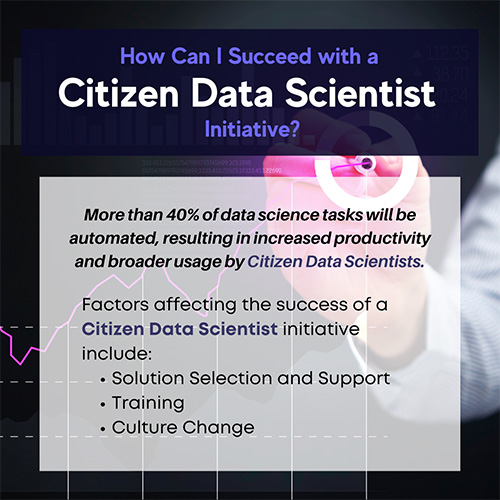
If a business is truly committed to the concept of Citizen Data Scientists, and wishes to achieve the benefits of this type of initiative, it must review its current environment, make the right augmented analytics solution selection and plan for and execute the changes required with an eye toward reinventing the culture and organization to encourage and support data literacy, and fact-based decision-making and improving the value of each team member by providing the tools and knowledge they need to perform at the highest level.
‘Gartner has predicted that ‘…more than 40% of data science tasks will be automated, resulting in increased productivity and broader usage by citizen data scientists.’
In order to accomplish the goal of transforming business users into Citizen Data Scientists, the organization should consider a foundational Citizen Data Scientist Training Program; one that will provide a better understanding of the role, how to collaborate, how to use the augmented analytics tools and analytical techniques and algorithms. In addition, it is wise to select an IT consulting partner with knowledge of the augmented analytics market, and a solution and support services to provide the guidance and Products And Services your business will need to succeed.



